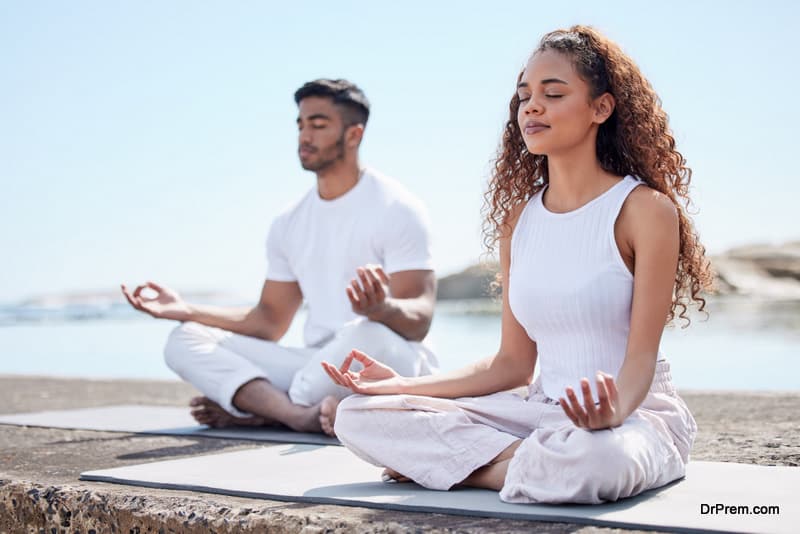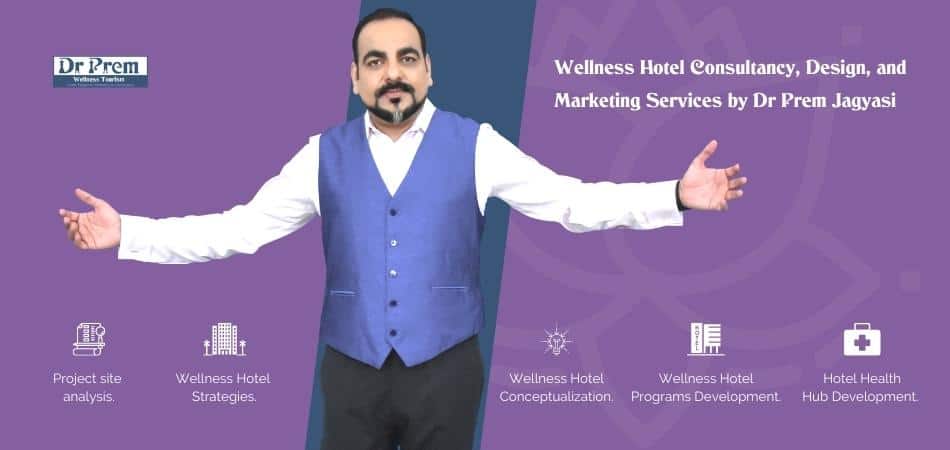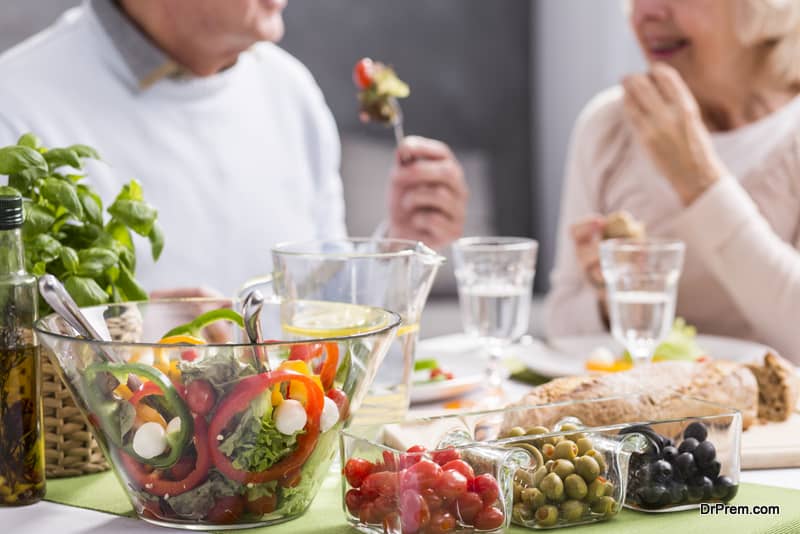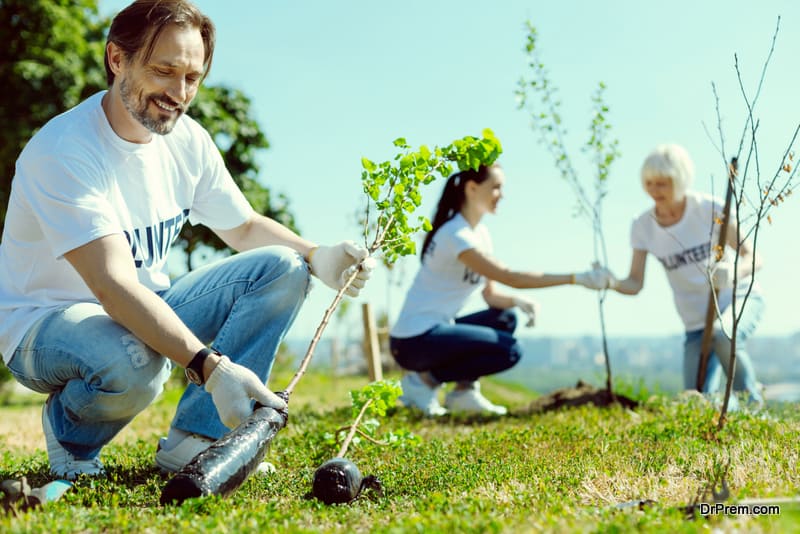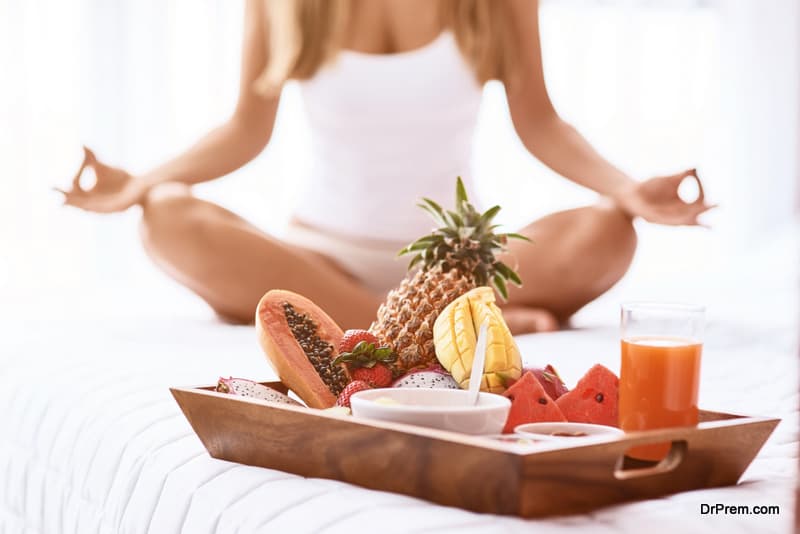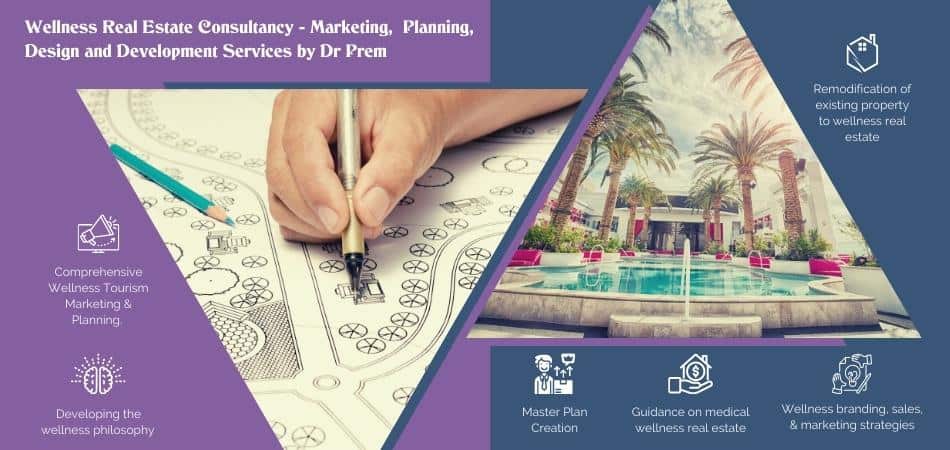Holistic wellness means perceiving wellness as a whole considering every factor influencing our mind, body and spirit, a utopian harmony achievable by humans. To steer through turbulence, it is holistic wellness that matters – the world has accepted it even though a tad late.
We view wellness in bits and pieces- good health, appearance, good food, or a roaring career. These reflect only few pillars of wellness. We miss out on other strong pillars and the holistic viewpoint. Perhaps, this is the reason we find handling overwhelming situations tough especially in crises.
Amid uncertainties, one thing is certain – mankind will continue to face unique global crisis where our wellness would be put to tougher tests. You can defer every other life activity not your pursuit to holistic wellness. Given the fact that how a microdem on spread like a wildfire affecting millions worldwide in just a year (the onslaught still remains unabated), we cannot take our wellness for granted.
This guide explains the meaning of holistic wellness, its dimensions, importance, and other vital tips. Below are the important points:
A Comprehensive Guide to Achieving Holistic Wellness and Resilience to Beat any Crisis – Definition, Dimensions, Importance, Impact and Tips
-
What is Holistic Wellness?
-
Why do we need to get into the core of wellness?
-
How global deaths from NCDs are driving the importance of holistic wellness?
-
Global mental disorders are compounding
-
Growing poverty and restricted earnings are creating more unwellness
-
How shifting approach towards life is leading to holistic wellness?
-
Heightened interest in physical and emotional well-being
-
Mental well-being is integral for holistic wellness
-
Physical fitness gets more attention in holistic wellness
-
New working spaces and models are contributing to holistic wellness
-
Spiritualism is significant in the pursuit of holistic wellness
-
Tips to cultivate dimensions of holistic wellness
-
How do you approach holistic wellness?
What is Holistic Wellness?
Our wellness rests on different dimensions around which our life spins. Life’s different aspects (physical, mental, emotional, social, etc.) are intricately interdependent contributing to our overall life quality including aspirations, achievements and despair. Unless we strive to harmonize wellness dimensions with a holistic approach, we will fall far behind realizing our individualistic potential to wellness.
Crises come as eye-openers bringing to light vital factors that we tend to underplay in good times. The recent global crisis has been a painful revelation of our faulty health systems, beliefs, and approaches towards life. It has made us identify the deep-running cracks and fissures in various aspects of life that could be set right with holistic wellness.
Why do we need to get into the core of wellness?
In this closely-connected world, our wellness is always under threats. To ensure our wellness, we need to ensure that of others too. A collective approach that has grown during the crisis need to be carried forward in a more organized manner. Just like small drops make an ocean, individual consciousness and approach towards holistic wellness can lead to collective wellness.
Let us get into the factsheet of global challenges that we have been facing for quite some time and have taken a more serious turn today. How our wellness is slowly getting eroded from these growing challenges is clear from it.
How global deaths from NCDs are driving the importance of holistic wellness?
- An estimated ¼ th of the global population (over 1 billion) are affected by metabolic syndrome (according to GWI report) making them more vulnerable to pathogenic attacks.
- Preventable NCDs account for 69% of annual global deaths. Incidences of chronic NCDs could be cut by at least half if people followed a healthy lifestyle.
- GWI in its 2021 report also states, food insecurity and inequality would be the biggest wellness issue in the coming years.
Global mental disorders are compounding
- Mental disorders are responsible for 14.3% global deaths causing nearly 8 million deaths each year. Globally, females are more affected by mental disorders (11.9%) than males (9.3%) according to Our World in data.
- World Data shows 970 million people around the world have a mental health or substance abuse disorder.
- Panic, distress, fear, stress, anxiety, and depression has been at all-time high in Covid-19 pandemic, and its long-term impact is yet to be assessed fully.
- Isolation and social-distancing measures heightened loneliness, which is a predictor of poor health and is as deadly as smoking a pack of cigarettes a day (according to AARP).
- People who are lonely are 64% more likely to develop dementia affecting their memory and cognitive skills.
- Prolonged social distancing may have affected our brain leading to some mental disturbances irrespective of us being infected with Covid-19 or not (WEF report)
- Research from WEF shows, younger generation below 30 years of age and those with pre-existing mental conditions showed higher levels of loneliness due to the pandemic-induced lockdown.
Growing poverty and restricted earnings are creating more unwellness
- Covid crisis can drive more than 1 billion global population to poverty, and is likely to increase dramatically in middle-income developing nations.
- Job loss or loss in earnings due to Covid-19 could be as much as $500 million per day for the poorest of the poorest in the world and the severity of poverty is likely to exacerbate dramatically.
How shifting approach towards life is leading to holistic wellness?
It is normal for an individual to focus on physical and mental wellness more in times of crisis but to sustain the optimum level of wellness, we cannot but factor in other aspects of wellness. It has been an interesting to watch the consumers’ shifting approach and behaviour in the recent crisis. Is it only for physical and mental wellness? Perhaps not.
Rushing for easy-to-reach-out ways to wellness – the Apps
When physical fitness became the prime focus, reaching out to fitness apps was the first and foremost wellness step by the global population. We saw:
- Record spending of $23.4 billion on mobile apps in the first quarter of 2020 where people focused on at-home fitness and wellness through apps during the lockdown.
- A whopping 31 billion new apps got downloaded in the beginning of 2020, and the average time spent in mobile apps and games shot up to 20% than the previous year.
- Downloading of Health and fitness apps was up by 40% on Google Play and 30% on iOS. Similarly, business app download was up by 30% on Google play and 35% on iOS.
- In the UK, health and fitness app download rocketed by 65% by the last week of March’20 with consumer spending topping $2.9 million. Time spent on these apps by Brits was up by 10% during the first week of lockdown
Heightened interest in physical and emotional well-being
An online survey by VICE Media Group Audience, the following noticeable demands came to the fore. According to the survey responders,
| Demand for wellness components | Before Covid | After Covid |
| Emotional wellbeing | 51% | 64% |
| Medical wellbeing (free from any disease) | 49% | 63% |
| Physical wellbeing (physically fit and energized) | 36% | 51% |
| Social wellbeing (having strong friendships and social relations) | 41% | 49% |
| Financial wellbeing (comfortable with finances) | 33% | 48% |
| Occupational wellbeing (enjoying and finding purpose in your day-to-day job) | 38% | 47% |
| Intellectual wellbeing (nurturing the desire to learn new things) | 38% | 46% |
| Relationship wellbeing (nurturing a loving, caring and intimate relationship) | 36% | 45% |
| Community wellbeing (caring for the community that we live in) | 26% | 36% |
| Spiritual wellbeing (finding the inner connect with self) | 16% | 22% |
In crisis, people are overly concerned with their health and wellness factors with emotional wellness doubling in priority than others. They are taking to simple incremental ways to enhance their physical, mental and medical health through methods well within their control. They have accepted the “unprecedented crisis” and are willing to adhere to a routine to ensure mental and physical wellness.
Mental well-being is integral for holistic wellness
According to survey responses, mental wellbeing has taken the centre stage based on how people perceive overall health and wellness. Young generation worldwide on an average on rating their health reported mental wellbeing as the deciding factor. Most of their struggle related to wellbeing could be attributed to anxiety, depression, stress, or lacking the sense of purpose.
Now what are the things that are pushing up anxiety?
It is emotional health/mental wellness (52%), personal financial status (44%), and loneliness or disconnection 42%.
Physical fitness gets more attention in holistic wellness
A recent report released by GWI states, regular physical exercises promote mental health.
More people are ditching sedentary habits and getting into moving more.
- The Zoe Report states, 85% of the global population understood the value of physical wellness and initiated some sort of exercise.
- While 47% of the UK population tried a new wellness practice, 61% admitted to valuing wellness more than ever before.
Young millennials more dedicated to physical fitness
Exercises, high-intensity workouts, walking, or jogging are pursued not only for image-building but mainly to remain fit and disease-free.
- 52% of young millennials would spend more time in physical wellness after the crisis.
- 20% of young generation are likely to invest more in fitness which doesn’t necessarily translate into visiting gyms or building biceps.
- 64% of the young generation will include outdoor walks and jogging as a part of fitness regime
- 35%-38% would prefer biking or hiking as a part of their fitness routine.
New working spaces and models are contributing to holistic wellness
Nobody would like to turn their living space into a working space but crisis enforced such transformations. Whether it is the home space or some other location outdoors, people were surprised to discover new modes of working courtesy digital platforms. Workcations, schoolcations, etc. that allowed earning and learning from anywhere in any location emerged.
Mastering new skills and learning new things
When survival is under threat, it is the new skills that come to rescue. Adapting to new ways of working, people learnt new skills be it for professional or personal purpose.
Spiritualism is significant in the pursuit of holistic wellness
Search for “prayer” doubled in 75 countries for every 80,000 new Covid-19 cases. People relied on spiritual connect hoping some greater power to save the world from the debacle that seemed to be never-ending. People trusted their ‘spirituality’ or inner faith more to beat the crisis.
Solidarity in community support
Seldom we get to see such a solidarity in community welfare unless we are in a midst of crisis where supporting each and everyone becomes a vital mode of survival. The way communities joined together in extending their helping hand across societies and geographical borders has been exemplary.
Respecting nature allowing her the needed space
Finally, it was the turn of mother nature to get acknowledged by human beings. We have realized restricted mobility gives space for nature to bloom only to be enjoyed by us in the near future. Air pollution that kills 7 million people a year dropped significantly.
Tips to cultivate dimensions of holistic wellness
While we continue to assess the devastation of this pandemic, green shoots of inspiration are imminent. Well, it has been the moment of awakening for global leaders and influencers on all fronts. Holistic approach to wellness has taken off among the masses who are looking forward to restructure and revisit age-old wellness beliefs and practices.
Holistic wellness encompasses 10 vital dimensions (it may be more to some).Taking 10 dimensions as the base, let us build awareness of these dimensions to make conscious choices in our daily practices.
1. Physical wellness
Implies maintaining optimum physical functioning through meaningful changes in our lifestyle and behaviour to keep ourselves disease-free.
- Do not go by conventions while making healthy food choices. Your dietary needs are special, the one-size-fits-for-all approach may not work.
- Opt for foods that gets completely metabolized by your system strengthening your immune-system.
- Check your lifestyle habits. Ensure they do not pose any threat to your health.
- Get into the right mind-body practices and healthy recreation.
2. Emotional/mental wellness
How well can you control your emotions when life throws stressors at you? Emotional wellness helps you to steer your feelings and emotions in the right way whatever may be the situation.
- Always remain connected to your family and friends. They are the ones who will provide your mental strength in times of distress.
- Practice mind-calming exercises like meditation, mindfulness, yoga, and breathing exercises.
- Focus on quality sleep.
- Prioritize self-care whatever may be the situation.
- Never hesitate to seek assistance when in need.
3. Social wellness
How strong is your social network? That precisely indicates your social wellness. People having stronger friendships and social network are likely to be happier and live longer. Positive social interaction builds the feeling of belongingness.
Crises help in renewing social ties that has almost got lost in the era of digital connection. Social network does not mean only connecting with digital media. Personal touch is ingrained in human genomes which supports physical and emotional wellness. It is the social connection and community support that come to rescue in times of distress.
- Maintain healthy in-person interactions with individuals and the community.
- Find a friend who helps you to be a better version of yourself.
- Respect other’s opinions and give due space to everybody and at the same time do not forget to set boundaries.
- Participate in social activities.
- Volunteer for a cause.
- Leverage social media for specific social upliftment or a cause.
- Maintain the personal touch even in the touchless era
4. Intellectual wellness
Stimulating your creativity, curiosity and learning skills add to your intellectual wellness. In crisis, we brainstorm on new ideas and opinions to tide over specific situations be it in personal or professional front.
- Nurture optimism and positive thinking.
- Be an eager learner always even in good times.Do not hesitate to explore new ventures.
- Feel confident in your own views. No need to borrow it from celebrities or other influencers.
- Be open to new ideas and thoughts even it is not from a recognized person/source.
5. Cultural wellness
Living in harmony with diverse cultures generating positive emotions makes up your cultural wellness. It is essential in our lives as it helps in maintaining healthy relationships with everybody around you.
- Grow knowledge about other cultures and expand your openness in accepting other cultures.
- Respect and value other’s cultures even if you are unable to accept everything in other’s culture.
- Engage in meaningful interactions with people from different cultures.
- Participate in different cultural celebrations around you to nurture a healthy bonding in your community.
- Join a cultural mission group if possible.
- Engage in frequent travel to learn and mix with different cultures. You develop different perspectives towards life.
6. Spiritual wellness
Devote some time to understand your connectedness with something greater than your own self. Pause and find out the purpose of your life in the context of your near and dear ones, your surroundings, nature and the universe. Praying in times of distress is a common practice that connects you to spiritualism. You derive solace and comfort.
- Understand your inner values and trust them.
- Nurture positive emotions like peace, gratitude, contentment and acceptance.
- Grow your will power and optimism through your prayers. Practicing spiritual rituals help in fighting depression.
- Follow your spirituality with religious regularity.
- Learn to express your mind clearly devoid of any confusion.
7. Occupational wellness
This implies job satisfaction along with a perfect work-life balance supporting your overall wellbeing. More than 3 billion people worldwide go to work every day. On an average, person will spend at least 90,000 working hours or 1/3rd of his/her life span to earn a living. Occupational wellness has direct link with financial wellness with the former supporting the latter in a big way.
- Organizations need to build the right workplace wellness culture based on a sustainable value system to create a safe and stress-free working environment.
- Workplace wellness programs need to be created with a holistic approach considering interdependence of all wellness dimensions.
- Extend wholehearted support enabling employees achieve the desired work-life balance.
- As a worker, you need to adopt healthy practices to maintain your workplace wellness.
8. Financial wellness
It is your financial health built through smart money management supportive enough for your sustenance. It should provide you the security, allow you to lead quality life along with making you resilient to any unforeseen financial shocks like job loss, pay cut or downturn of economy.
- Create time-bound financial goals working on target-oriented strategies.
- Plan to utilize the cost rather than wondering where money got lost.
- Keep track on your personal net worth. Do not be disappointed if it falls beyond a certain limit. Simply you have to do something extra to restore its healthy state.
- Curtail your needs and wants as and when the situation demands.
9. Environmental wellness
Focussed efforts to maintain ideal environmental conditions for the society, nature and its other components to thrive leads to environmental wellness.
- Practice minimalism with due respect to natural resources. Never take them for granted.
- Engage in outdoor nature immersion. Plant trees and take up green practices.
- Involve your community to take sustainable environment conservation efforts.
10. Ethical wellness
Practicing specific codes of morality to support the wellbeing of fellow human beings and community sums up ethical wellness. Often it is not counted among the wellness dimensions but given the enormity and frequency of crises the world is facing, we cannot but include it in the list. Unethical practices have devastating effects on other’s wellbeing. High time we recognize itand adhere to certain practices for self-benefits and that of others.
- Ensure any big or small activity of yours does no harm to others.
- Be accountable in what you do or say in all aspects of life.
- Practice honesty, responsibility, fairness and dedication.
- Make conscious decisions about your well-being choices without hurting others.
- Do not engage in creating and spreading unverified information or messages.
Aligning to conscious holistic approach to wellness
All of us do follow the above mentioned ten wellness dimensions in our daily life activities but unconsciously. It is not that we would focus on a few dimensions thinking everything will fall in line which is not. We need to be in the life flow balancing all the dimensions to achieve the utmost realization of well-being.
Yes, it is a continuous process, an interesting journey where you are conscious of all activities and its outcomes having control on your wellness. This consciousness will guide you in making much more better choices in the future taking your well-being to a new level. True, you will have your share of lows in life but the habit of balancing wellness dimensions will help you to bounce back soon.
How do you approach holistic wellness?
Simple. Just make it a habit. Do you know 40% of our daily behaviours change into powerful habits. It is these habits that are going to reshape our lifestyle and existence and the future. Crises, therefore, can be considered as great teachers that enforce us to build life changing habits bringing out the best of everything from deep within.
We learn to take a holistic view of everything happening around us. When it becomes a collective approach, it can take on any crisis. Small incremental steps towards wellness can lead to great transformation for good. These are well within our reach. We need to start right now!
The world is gearing up to shelter 800 million aging population who are vulnerable and add to global healthcare burden. It is for us to choose whether we wish to lead a disease-crippled longevity or a well-lived holistic life.


